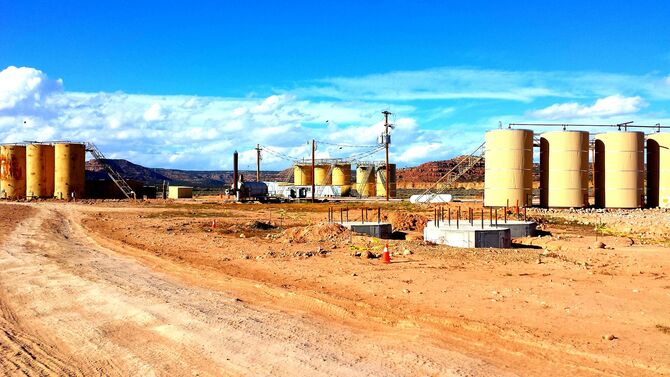International schools "hit hard by oil and gas crisis"
As schools open up for the new school year, the effect of the oil and gas slump is having a major impact on pupil numbers in international schools across the world.

Oil and gas slump means sharp decline in international school enrolment
International schools have seen a sharp decline in pupil enrolment following the number of expat families leaving regions with previously strong track records of employment in the oil and gas industry. Malaysia, Singapore and the Middle East will be hardest hit says Richard Gaskell, director of The International School Consultancy.“Some schools were affected during the last academic year, with a number of expatriate families immediately redeployed or made redundant,” he says. “This year, many more schools will see an impact as a significant number of additional families employed by the oil and gas industry do not return to expatriate postings after the long summer holidays.“The schools most affected are those that largely enrol expatriate rather than local children, and those that have a high percentage of enrolments from families working in the oil and gas sector. The feedback that we are receiving from many schools is that they have been able to fill these gaps through existing waiting lists, or they have stepped up their admission marketing, and some have cut back on their staffing for this new year.”Oil & gas crisis: challenging times for Premium International Schools
The situation could be most challenging for premium international schools, says Mr Gaskell. He believes that the schools that charge the highest fees are most likely to be affected. “Some companies that may have previously contributed all or a large portion of the school fees for their expatriate families, are now pulling back on such benefits to save costs,” he says. The result might be that some families are being forced to cover their own school costs and, predicts Mr Gaskell, they may now seek out more affordable international schooling options.With companies in Malaysia withdrawing many of their expatriate staff, the country is not likely to see the usual influx of new expats seeking school places this year.See also:
- Selecting the right international school in Malaysia
- Oil industry warned against drastic cuts
- North Sea oil & gas industry should ‘learn from Norway and Saudi to secure its future’
Julia Love, Director of Admissions at the International School Kuala Lumpur, said, “We are anticipating a lower enrolment for the 2016–2017 academic year because of the drop in oil prices and have accounted for that in our hiring of faculty.“This is not a dire situation,” she is quick to point out, “but we must be smart as we know that there will continue to be cuts in oil and gas companies. We are fortunate that a number of companies from other industries, mostly high tech, are moving groups of families to Kuala Lumpur and this will ensure that our enrolment is stable for the coming year.”According to the ISC, Indonesian international schools haven’t experienced the impact yet. This could be due to the fact that there were already long waiting lists at good international schools in the region.Although some schools in the Middle East are experiencing a decline in enrolment numbers others can see a happier end to the story.“The oil price has led to significant redundancies across industries associated with the oil and gas sector,” agrees Clive Pierrepont, Director of Communications at the Taaleem group of schools in the United Arab Emirates. However, he says, “the outflow of expatriates as a result of this has been balanced by an influx of people coming into the country to support initiatives related to Expo2020 and future finance, commerce, travel, tourism and leisure sector growth.”




































